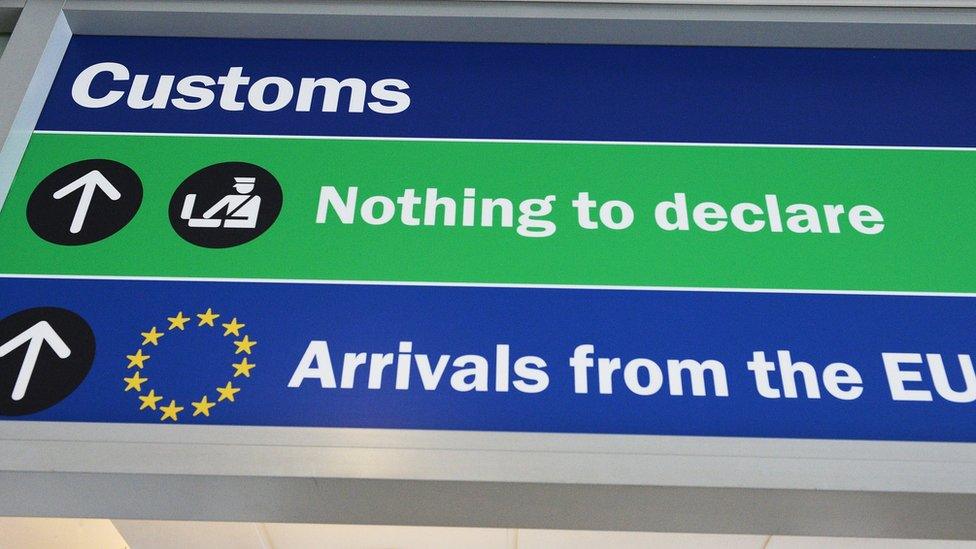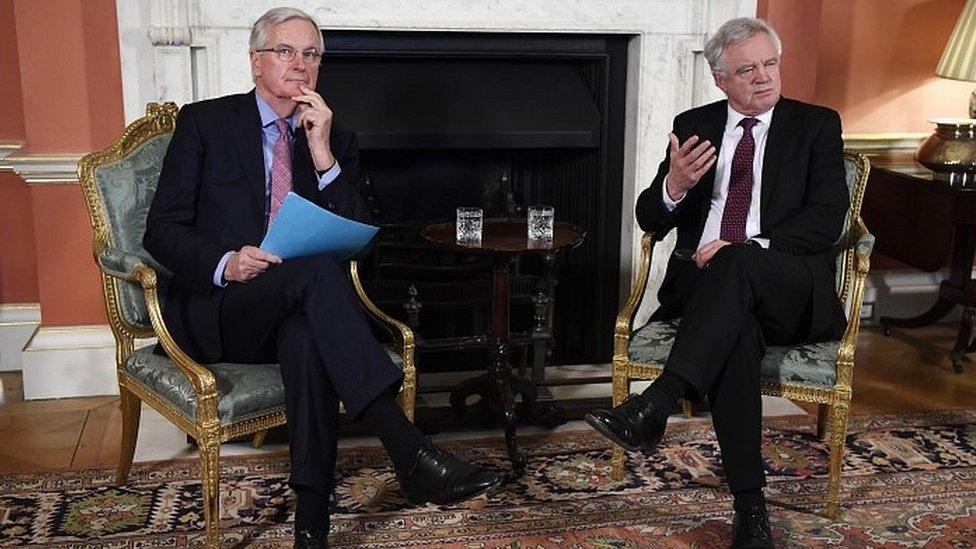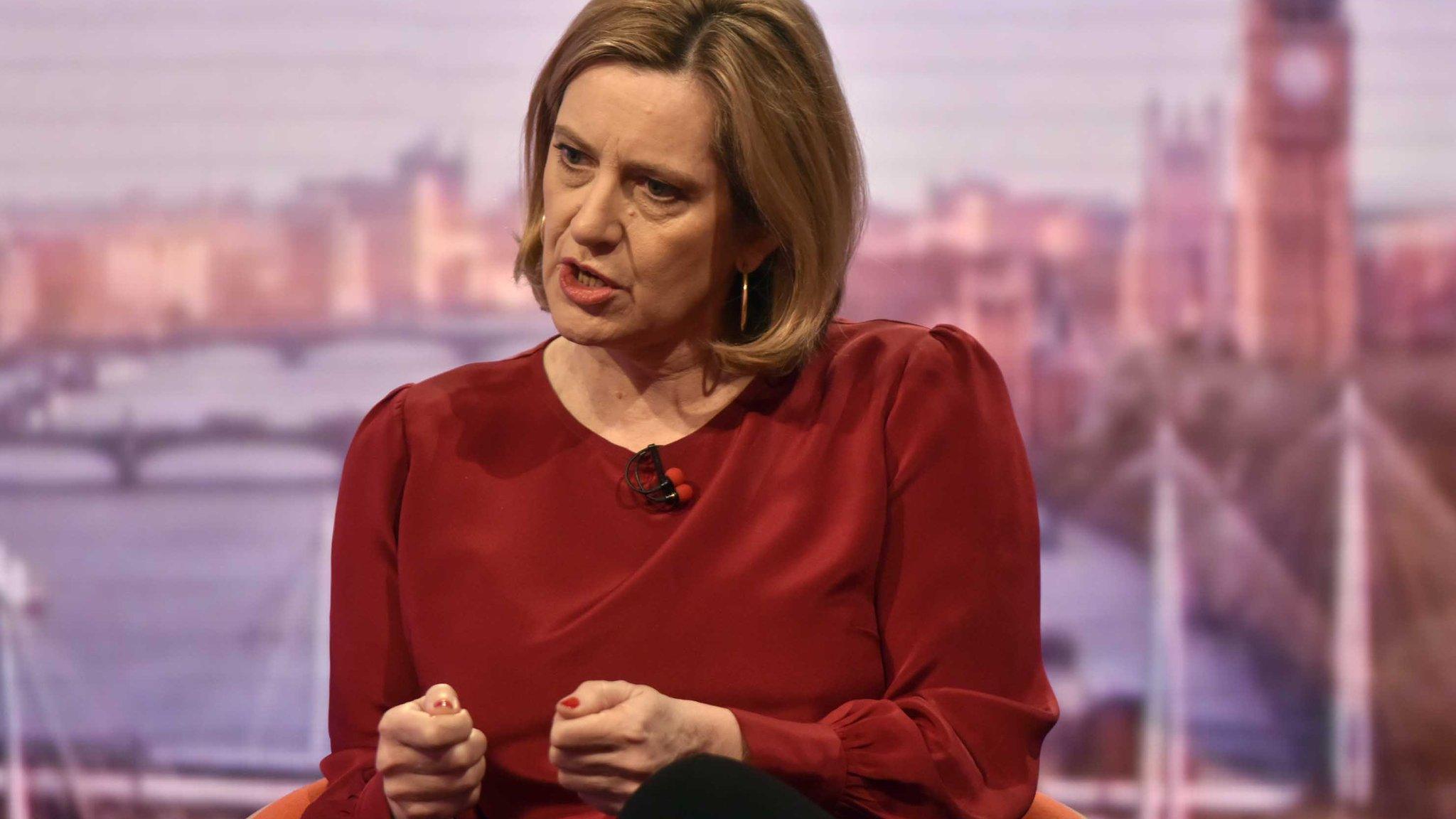Reality Check: How soon are Brexit answers needed?
- Published

If last week is anything to go by, we can expect a lot of sound and fury over the next few days about Brexit debates within the cabinet, the government and the Conservative Party.
Demands for the government to clarify its ambitions for the UK's long-term relationship with the EU continue to grow.
And this raises the question of how long creative ambiguity for the purpose of negotiation (if that is what it is) can continue.
Not much longer is a fair assumption - not least because in two months' time businesses will suddenly find themselves entering the financial year in which Brexit is due to happen. Plans need to be put in place.
The EU has already emphasised on numerous occasions that until it has a clearer idea of the UK position (beyond the desire for a "deep and special partnership"), negotiations on the future can't really begin.
But that doesn't mean there isn't plenty going on, and plenty to do, in the meantime. In that spirit, another round of negotiations is taking place in Brussels this week.
Irish border
To begin with, the agreement reached in December that "sufficient progress" had been made on a series of "divorce" issues still needs to be turned into a viable legal text - a withdrawal agreement that would have to be signed and ratified before the UK leaves the EU, on 29 March 2019.
You'll remember the main issues involved:
the future status of the Irish border
a financial settlement or "divorce bill"
future rights of EU citizens in the UK and UK citizens elsewhere in Europe
The Irish border has emerged as the most difficult issue to resolve - a dilemma encapsulated in the argument surrounding "the", "a" or even "an" customs union.
Staying in any kind of customs union would not in itself ensure that the border between Northern Ireland and the Irish Republic would remain as invisible as it is at the moment. There's a good explanation of that here.
But the future customs relationship has become a bit of a lightning rod for a host of other issues.
The government says it wants a new bespoke customs arrangement, without providing a huge amount of detail about how it can be achieved.
Some kind of deal on the Irish border needs to be done, though, before the withdrawal agreement can be finalised.
Transition or implementation?
At the same time, intensive negotiations on a transition period for up to two years after Brexit are about to begin. (Yes we know - just to confuse matters still further, the government prefers to call it an implementation period.)
The EU's guidelines for the negotiations on transition stipulate that it will take place under all existing EU rules and regulations, although the UK will no longer have any say in making them. The UK will however be able to start negotiating (although not implementing) its own trade deals around the world.
The government has broadly signed up to the terms of transition, but it wants a few exceptions built in to the system. That suggests that it may not be quite as easy as both sides hope to finalise the transition negotiations at a European summit in March.
Once again, there is political pressure coming from all sides. Brexiteers fear that the transition will turn the UK into a "vassal state", while the government says it will give businesses more time to plan for the future.
Trade deal
But what will the future actually look like? Negotiations on that haven't even begun yet: the other 27 EU countries are still considering their joint position while they wait for more clarity from London.
Above all, they want to know more detail about the kind of trade relationship the UK hopes to have.
Will it remain closely aligned with EU rules and regulations? Will it try to forge its own path? Or - as seems likely - will it try to negotiate a mixture of the two? The EU is already warning against "cherry-picking" the best bits.
There are also a host of other areas in which the UK cooperates closely with the EU - security and policing, for example, and foreign policy - new relationships need to be negotiated there too.
So "plenty to do" is perhaps putting it mildly - no wonder the EU's chief negotiator, Michel Barnier, said on Monday there wasn't a minute to lose.
Unravelling an intricate relationship that has developed over more than 40 years was never going to be easy. But difficult decisions can't be put off much longer.



- Published5 February 2018

- Published5 February 2018
- Published4 February 2018
